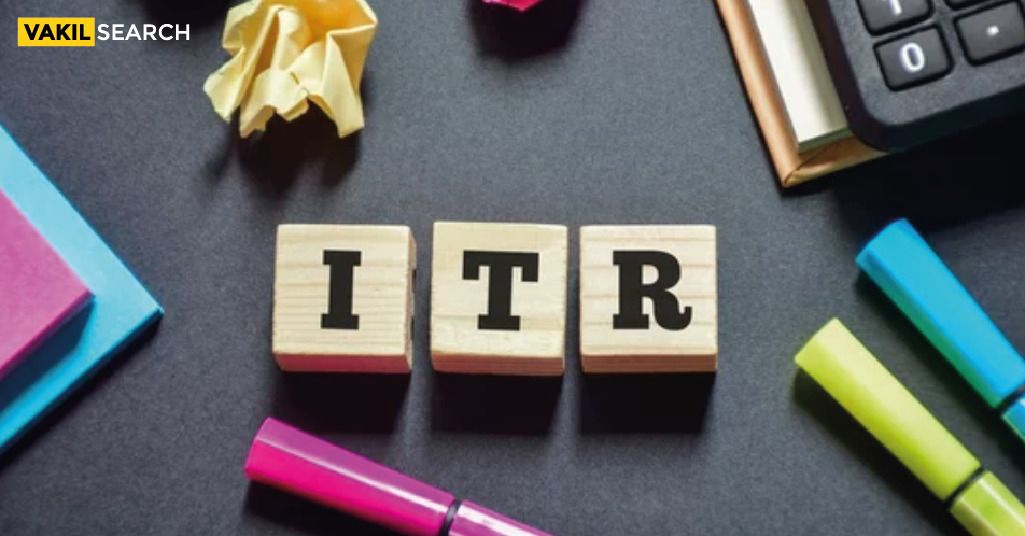This blog provides a comprehensive guide to proprietorship tax return filing to help maximise your savings. Learn about important points and subheadings to make informed financial decisions.
Overview
As a sole proprietor, filing your tax returns can be a daunting task. You need to ensure that your tax returns are filed on time and accurately, while also minimizing your tax liability. With the right knowledge and approach, you can file your tax returns with ease and maximize your savings. In this guide, we’ll take you through the process of ITR for Proprietorship and provide you with tips and strategies to help you minimize your tax liability.
Understanding Proprietorship Taxes
Before we delve into the tax return filing process, it’s important to understand what ITR for Proprietorship taxes are. As a sole proprietor, you are required to pay income tax on your business income. This income is taxed at your personal income tax rate. Additionally, you may be required to pay other taxes, such as self-employment tax, sales tax, and excise tax.
Who is Eligible to File ITR for Proprietorship?
Any individual who owns a proprietorship business is required to file tax returns if their annual income exceeds the minimum taxable limit. The current minimum taxable limit in India is ₹ 2.5 lakh per annum.
Benefits of Filing Proprietorship Tax Returns
Filing tax returns for your ITR for Proprietorship business has several benefits. Firstly, it helps you stay compliant with the law and avoid penalties for non-compliance. Secondly, it enables you to claim deductions and exemptions that can reduce your tax liability. Additionally, if you plan to apply for a business loan in the future, having regular tax filings can strengthen your case.
Documents Required for ITR for Proprietorship
To file your proprietorship tax returns, you’ll need to have certain documents ready. These include:
- Business Income and Expense Records: Keep track of all your business income and expenses throughout the year. You can use accounting software or a spreadsheet to do this.
- Personal Income Tax Records: You’ll need your personal income tax records for the year, including any tax deductions and credits you may be eligible for.
- Tax Forms: You’ll need to fill out and file various tax forms, including Form 1040, Schedule C, and Form 8829.
- Bank Statements and Receipts: Keep all your bank statements and receipts for the year, as these can be used to substantiate your business expenses.
Navigate tax complexities with ease – Uncover hidden opportunities using our Tax Calculator India.
Filing Your ITR for Proprietorship
Once you have all the necessary documents ready, it’s time to file your tax returns. Here are the steps you need to follow:
- Determine your Filing Status: As a sole proprietor, you’ll file your tax returns as an individual. You can choose between single, married filing jointly, married filing separately, or head of household.
- Calculate your Taxable Income: Calculate your taxable income by subtracting your business expenses from your business income.
- Fill out the Required Forms: Fill out Form 1040, Schedule C, and any other relevant forms. Be sure to fill them out accurately and completely.
- Pay Your Taxes: If you owe taxes, pay them by the due date to avoid penalties and interest.
Maximizing Your Savings
Now that you know how to ITR for Proprietorship, let’s look at how you can maximise your savings:
- Deduct all Eligible Business Expenses: Deducting all eligible business expenses can significantly reduce your taxable income and lower your tax liability.
- Use Tax Credits: Take advantage of all tax credits you are eligible for, such as the Earned Income Tax Credit or the Child Tax Credit.
- Make Retirement Contributions: Making retirement contributions can reduce your taxable income and help you save for your future.
- Hire a Tax Professional: Consider hiring a tax professional to help you identify all eligible tax deductions and credits and minimise your tax liability.
Tips to Maximize Your Savings While Filing ITR for Proprietorship
There are several strategies you can use to maximise your savings while ITR for Proprietorship business. These include:
- Keeping proper records of your income and expenses
- Claiming all applicable deductions and exemptions
- Opting for the presumptive taxation scheme if your turnover is below ₹ 2 crore
- Investing in tax-saving instruments such as the Public Provident Fund (PPF) or National Pension Scheme (NPS)
Common Mistakes to Avoid When Filing ITR for Proprietorship
There are several common mistakes that people make when ITR for Proprietorship business. These include:
- Failing to maintain proper books of accounts
- Not disclosing all sources of income
- Claiming inappropriate deductions and exemptions
- Failing to file tax returns on time
Conclusion
Vakilsearch, as a legal and tax service provider, can assist ITR for Proprietorship accurately and efficiently. Vakilsearch’s team of tax experts can provide guidance on tax compliance and help ITR for Proprietorship take advantage of all eligible tax deductions and credits. By hiring Vakilsearch’s services, proprietors can ensure that their tax returns are filed correctly and in a timely manner, reducing the stress associated with tax season and freeing up time to focus on their business operations.
Helpful Links

